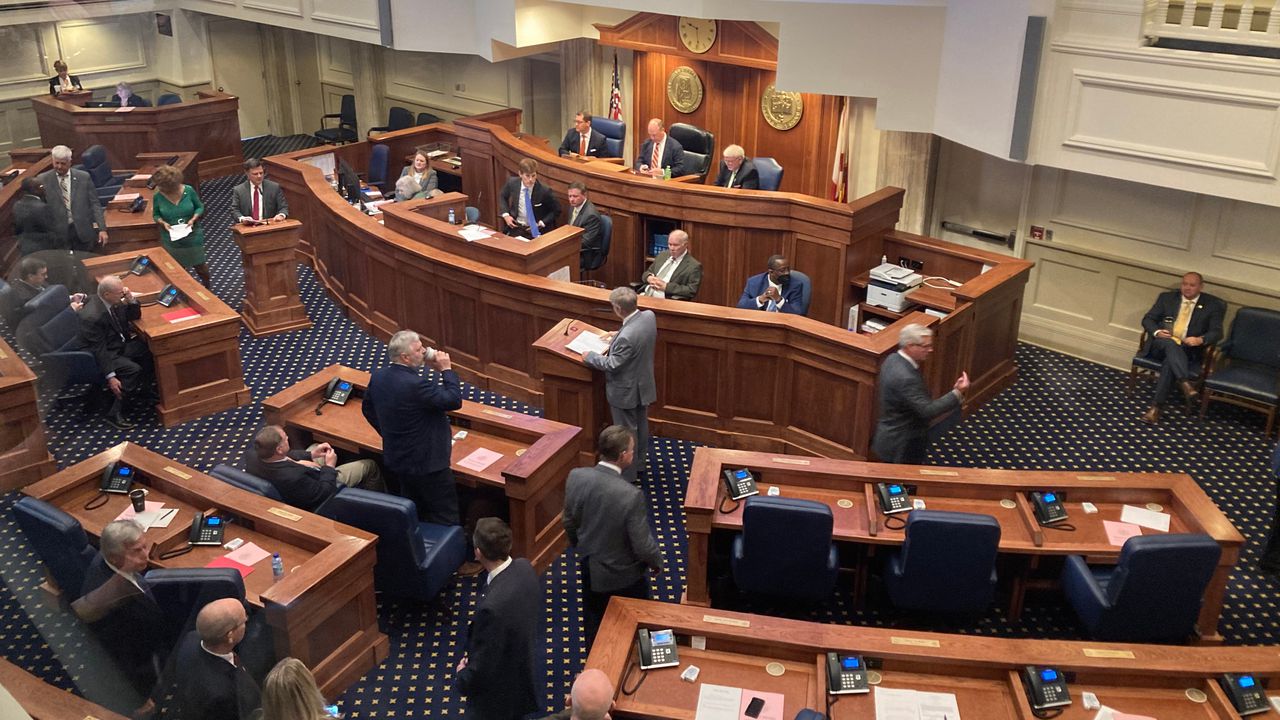Education budget chair files bill to phase out sales tax on foods
The chairman of the education budget committee in the Alabama Senate has introduced a bill to gradually repeal the 4 percent state sales tax on basic foods such as bread, milk, eggs, cheese, infant formula, and fresh fruit and vegetables.
Sen. Arthur Orr, R-Decatur, who had said last month he planned to bring the bill, filed it on Wednesday. Lawmakers have introduced bills to repeal the sales tax on food for decades without success. But Orr’s bill could add momentum to what appears to be bipartisan support for the idea this year. Rep. Danny Garrett, R-Trussville, chair of the House education budget committee, has introduced the bill in the House. The Alabama House Democratic caucus has also called for a repeal of the tax on food.
A main reason that previous bills to repeal the tax on food have failed is that the tax supports public education. Garrett said the bill would reduce revenue to the Education Trust Fund by about $200 million. That would be about 2 percent of the more than $10 billion the ETF received last fiscal year.
Orr’s bill would define food as the items that are included in the federal Women, Infants and Children nutritional program. WIC provides essential foods to pregnant women and children up to age 5 who meet income guidelines. Orr said he plans to get estimates on how much more it would cost the ETF to add fresh meats to the exemption.
Some previous proposals would have repealed the state sales tax on all foods, including soft drinks and snacks. Orr said that would reduce the ETF by more than $600 million a year.
One reason there is more talk about repealing the sales tax on food this year is that the state budgets are in unusually good shape. The ETF ended the last fiscal year on Sept. 30 with a $2.8 billion surplus, the difference between how much money came in and the spending that was planned in the budget.
Still, legislators have said the surge in revenues, fueled by inflation and billions in federal dollars for pandemic relief, will not last. Orr’s bill includes safeguards intended to soften any loss in revenue to the ETF when revenues level off or decline.
Under the bill, starting Sept. 1 of this year, the state sales tax on groceries would be cut from 4 percent to 3 percent. On Nov. 1, 2025, and in November of odd numbered years after that, the rate would go down another percentage point. That would continue until the tax was eliminated. But if growth in ETF revenues falls below 5 percent, the rate would not be reduced in those odd-numbered years.
More than half of the sales tax most people pay on their food comes from the city and county portion of the sales tax. Orr’s bill would not change those. But it would prevent cities and counties from raising their sales taxes on the WIC-defined list of foods.
Orr said he plans to talk to the Senate’s Republican caucus about the bill next week and possibly have the bill in committee the following week.
Lawmakers have proposed other tax cut bills that await consideration. Gov. Kay Ivey proposed a one-time tax rebate of $400 for individual taxpayers and $800 for couples. This is the fourth week of the legislative session, which can last up to 15 weeks.
